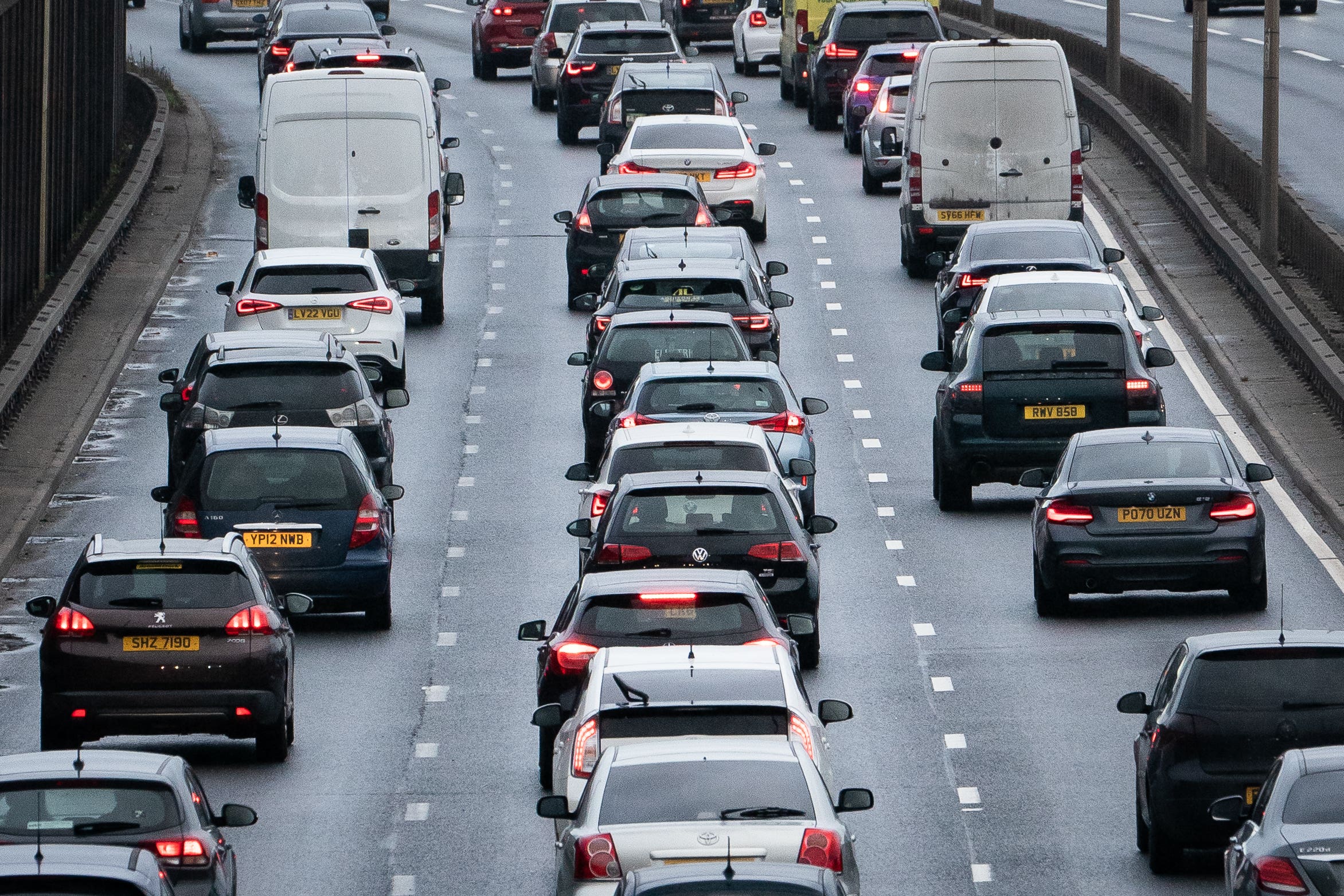Self-driving cars could nearly double road congestion, says Government report
Department for Transport traffic projections for England and Wales show delays may rise by up to 85% from 2025 to 2060.

Your support helps us to tell the story
From reproductive rights to climate change to Big Tech, The Independent is on the ground when the story is developing. Whether it's investigating the financials of Elon Musk's pro-Trump PAC or producing our latest documentary, 'The A Word', which shines a light on the American women fighting for reproductive rights, we know how important it is to parse out the facts from the messaging.
At such a critical moment in US history, we need reporters on the ground. Your donation allows us to keep sending journalists to speak to both sides of the story.
The Independent is trusted by Americans across the entire political spectrum. And unlike many other quality news outlets, we choose not to lock Americans out of our reporting and analysis with paywalls. We believe quality journalism should be available to everyone, paid for by those who can afford it.
Your support makes all the difference.Motorists could be stuck in congestion nearly twice as bad as current levels if self-driving cars become commonplace, a Government report warns.
Department for Transport (DfT) traffic projections for England and Wales show delays may rise by up to 85% from 2025 to 2060 in that scenario.
The analysis is based on connected and autonomous vehicles making up half of the car fleet by 2047, and a “fast uptake” of electric vehicles.
This would lead to more traffic by “increasing the mobility of the elderly and those who do not currently hold a driving licence”, according to the report.
But the document, published last month, claims “the ability to work or relax while travelling in a self-driving car” means occupants will be “more amenable to sitting in traffic”.
RAC Foundation director Steve Gooding told the PA news agency: “There are currently 5.9 million licence holders aged 70 or over in Britain, so we know the demand for mobility is there among those of a senior age.
“In the foreseeable future, automated vehicles offer the tantalising prospect of independence for the many millions more people who fall into the older age group but for whatever reason – cost, medical impairment – don’t currently drive.”
Mr Gooding predicted that the way in which autonomous technology is deployed will be significant.
He said: “If everyone insists on having their own driverless car then traffic volume and parking pressures will rise.
“However, if we are prepared to access these vehicles on-demand and forego personal ownership then we could have a win-win situation: quieter roads, fewer cars shared by the many, and cheaper transport.”
Recent analysis by traffic information supplier Inrix found that UK drivers lost an average of 80 hours last year due to congestion, a seven-hour increase from 2021.
London was found to be the world’s most congested city in 2022, with drivers in the capital spending an average of 156 hours sitting in traffic.
Writer and broadcaster Christian Wolmar, the author of Driverless Cars: On a Road To Nowhere, insisted that the Government should “not be trying to accommodate” the levels of traffic which it is feared self-driving cars will generate.
He said: “We should be doing everything in our power to ensure that doesn’t happen.
“The idea that you have a technological fix to congestion is nonsensical.”
Mr Wolmar described the suggestion there will be a “critical mass” of self-driving cars by 2047 as “fanciful”.
He added: “I think there is zero chance of there being driverless cars that operate in mixed areas with other traffic in any large amount or in any difficult situation.
“There has been very little real progress in terms of creating cars that could go anywhere in any conditions.
“It doesn’t look feasible.”
Fully driverless cars are not legally permitted in the UK but autonomous features are being developed by car makers.
Oxford-based technology company Oxbotica completed its first fully autonomous, driverless vehicle test on public roads in May 2022.
In August last year the DfT said it expected self-driving vehicles to be available for use by 2025.
The research was not welcomed by self-driving firm Wayve which was critical of the modelling used.
Kaity Fischer, its vice president of commercial, said: “Self-driving vehicles will be an integral part of a safer, more efficient and more sustainable transport system.
“The Government’s modelling was based on the private ownership of self-driving cars, but here at Wayve we are optimising our technology on electric vehicles for fleet customers in sectors like last-mile delivery and shared mobility services.
“Self-driving vehicles, when used in electric fleets, will ultimately lead to faster journey times and reduce the number of vehicles on the road, cutting congestion and emissions.”